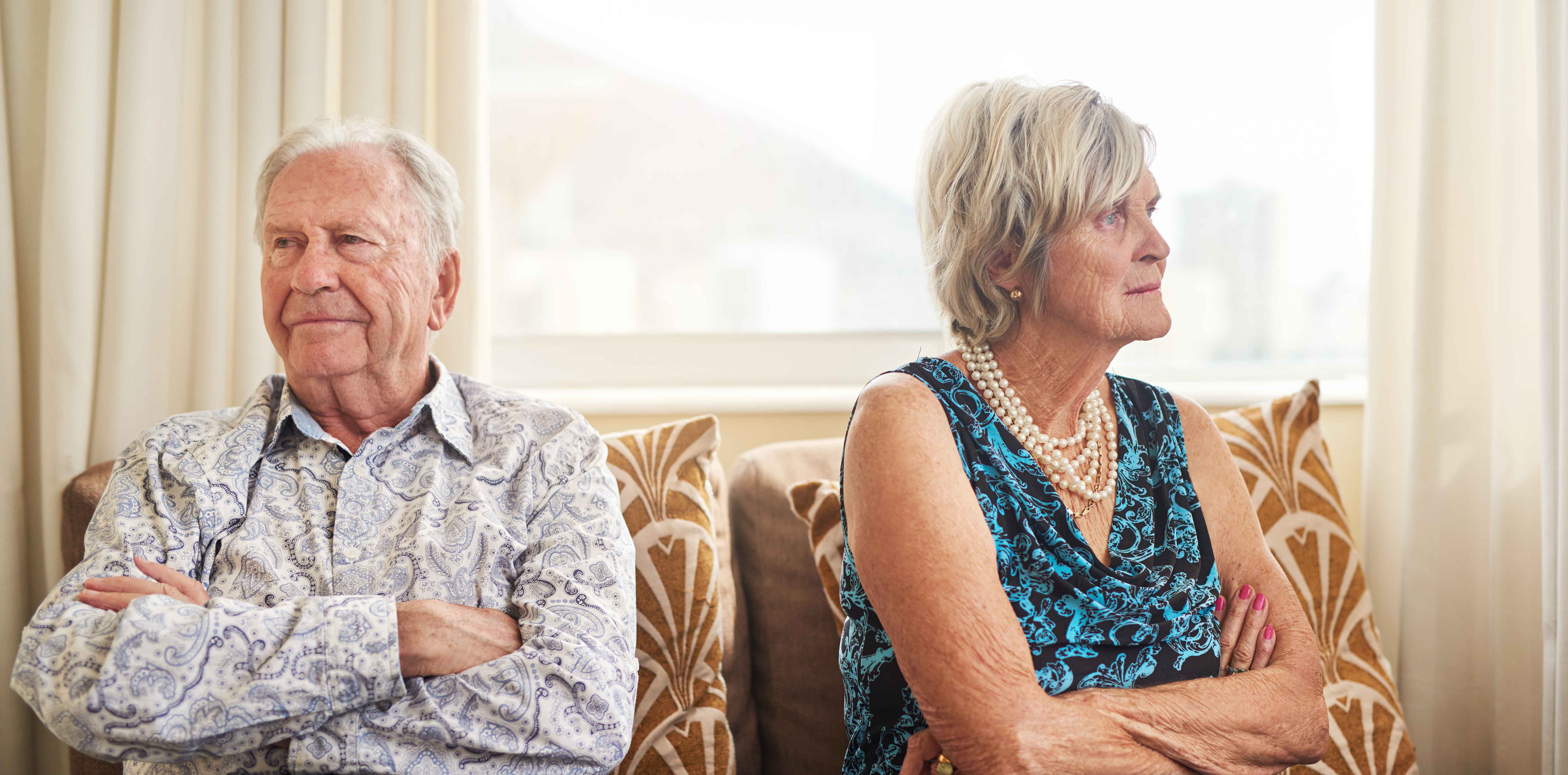Domestic trouble - 50 shades of grief and shorthand for a mountain of misery - can be a slow burner, or strike like shingles
Dear Julia,
Time drags during a heat wave, especially if you are friendless and live alone in western Queensland.
I met Ron last week. Ron once resided on the coast in a double-storey place with ocean views, three dogs, nice neighbours and a soul mate. He now spends solo afternoons in a cheap fibro bungalow “Sprawled on the bed, listening to the wireless and playing solitaire”.
The explanation for such a dramatic change in circumstances was concise. “Domestic trouble, doc.”
Domestic trouble – 50 shades of grief and shorthand for a mountain of misery – can be a slow burner, or strike like shingles.
Sometimes it’s easy to see it coming.
“Things went to shit around smoko. I was whipper-snipping and broke a car window. The second time it’s happened. First new car we’ve ever owned. Not even up to the first service yet. The wife is not happy.”
And then there was my elderly patient, Alice. She had a broken wrist. “I was defrosting the spare freezer in the garage and Bert had been raking leaves in the garden. I was carrying a laundry basket full of frozen chops and mince inside and tripped over a rake that he had left lying at the back door. I’ve spoken to him about that sort of thing before.”
The constant drip of annoyance can destroy a happy home.
I’ve been watching the storm clouds of “domestic trouble” gathering over the heads of the spouses of Mavis, Beryl and Joan.
At 85, Mavis is a modern, switched-on woman. She Snapchats, WhatsApps, messages the family, reads the news online and has an active Facebook page. Sadly, her husband “Is just not technically inclined. He insists on talking loudly on the landline and leaves the Weekly Times scattered all over the house.” It does not bode well.
Beryl’s partner of 50 years also is under threat of domestic redundancy due to a habit of losing repeat prescriptions. “He always says he’ll put them ‘somewhere handy’ then can never find them when he’s looking for them. I’ve just about had enough.”
And then there’s Joan. Joan loves her garden but is fighting a losing battle with her man’s pets. “He has a 17-hand horse and a pet black angus bull called ‘T Bone’. I’ve told him that if they don’t go soon, I will.”
Not all domestic trouble is quite so understandable.
Jimmy came to see me with a bad back accompanied by his wife, Ursula, who was dressed in black, clearly unhappy, and did all the talking. “I don’t like people anymore doctor, NONE of them. They’ve all got ailments and complaints. I prefer to spend my time making voodoo dolls and sticking pins in them.”
I fear that Jimmy’s pain is going to get worse and that he is destined to join the ranks of single men in town, a motley crew making the best of lonely lives. Men do not generally fare well on their own.
Jason wandered into the ED dehydrated, confused and with blood tests showing that he was low on potassium and phosphate but high on lactate; an odd metabolic state explained by his brush with domestic trouble.
Separated, no Centrelink entitlement and with a five-year-old daughter living interstate, Jason has done both “time” and drugs. He now lives exclusively on noodles and sleeps in an old Falcon station wagon. Both Jason and the car are perpetually running on empty.
Things are not quite so dire for Barry; he has a job, a good car and drives seven hours every second weekend to see his daughters. And drinks too much the rest of the time. “It’s no fun being an alcoholic you know.”
Stumpy’s wife took off 20 years ago and he bears no animosity. “Fair enough I reckon. I have always been the most useless prick in town.”
Chris, conversely, has tired of the single life and seeks partners the modern way. The price paid for a wild past has been erased by modern antivirals. The specialist has given him the all clear so Chris now loudly and proudly proclaims his hep C-free status on Tinder.
Domestic trouble can be avoided by not becoming domesticated, which is the approach taken by Mac. All country butchers are good talkers and Mac was no exception. On first entering his establishment I was confronted with a startlingly bushy, nicotine-stained moustache and a loud: “What are you doin’ in town and who are ya?”
An imposing and generously gutted man, Mac had more than a whiff of “Wolf Creek” about him and sounded like something out of “Wake In Fright.”
Disconcerting, but we fell into a philosophical conversation, as one does in a butcher’s shop. Mac pensively probed his right nostril, languidly scratched his balls, picked my snags and steak up out of the display cabinet with his bare hands and confided that he chooses to remain single. He does not believe that there is anyone worthy of being shackled to for the rest of his life.
But you can never tell. Some messy, poor, chaotic households can be havens of domestic harmony.
I had known and cared for Jessie and Larry for years. Survivors of the 1960s, their life together featured hard drinking, hard smoking, plenty of dope and a succession of clapped-out cars on blocks in the front yard. Jessie finally died of emphysema, leaving Larry with a parting blessing: “We’ve had a good life together. Now you go and have a better one.”
Domestic trouble. The new epidemic, bigger than obesity and coming to a town near you.
Love, Dad
Dr Max Higgs is a former country GP, a current rural and remote locum and a collector of stories


